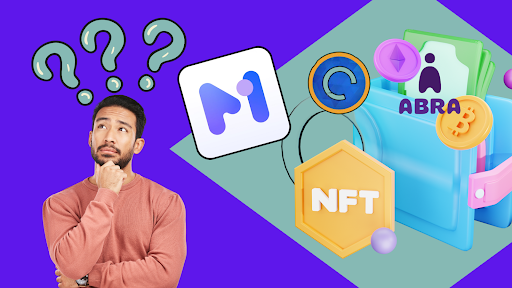
Welcome to our comprehensive guide to the top digital wallets in the Philippines! In this article, we’ll explore the features and benefits of these innovative financial tools currently transforming the way Filipinos manage their money. Whether you’re looking for a secure and convenient way to buy cryptocurrency or seeking a perfect app to store your NFT, we’ve got you covered.
Are you ready to find your perfect cryptocurrency wallet? Let’s go!
A cryptocurrency wallet is a digital wallet which lets users securely store, send, and receive various types of cryptocurrencies. It functions similarly to a traditional wallet, but instead of holding physical cash or cards, holds digital currencies. With the increasing popularity of cryptocurrencies like Bitcoin and Ethereum, having a reliable cryptocurrency wallet has become essential for anyone looking to participate in the world of digital currencies.
There are various types of cryptocurrency wallet designed to suit different needs and preferences. Let’s break them down:
| Software Wallets | Hardware Wallets | Web-Based Wallets | |
| Availability | Available as downloadable apps for your computer or mobile device. | A physical device storing private keys offline. | Accessed through a web browser, no download required. |
| Convenience | Offers convenience and access on the go. | Provides an extra layer of security against online threats. | Offers simplicity and ease of use. |
| Security | Ensure your device is secure to prevent malware or hacking risks. | Ideal for safeguarding larger amounts of cryptocurrencies. | May not offer the same level of security as software or hardware wallets. |
| Operations | Easily manage your cryptocurrencies. | Might be less suitable for frequent transactions due to their physical nature. | Important to choose a reputable provider and take precautions to secure your account. |
Remember, the type of wallet you choose depends on how you plan to use your cryptocurrencies, and your level of comfort with its security measures. It’s always a good idea to do your research and understand the pros and cons of each type before making a decision.
These diverse wallets cater to a range of user preferences, bridging convenience, security, and user-friendly interfaces in response to the ever-evolving crypto landscape in the Philippines.
When dealing with cryptocurrency wallets, keeping your money safe is of the utmost importance. As cryptocurrencies grow more popular, it’s an unfortunate reality that bad actors will try to steal them.
To stay safe, choose a well-known wallet that’s been approved by experts and offers extra protection like two-factor authentication (2FA). Make sure to always update your wallet’s software in order to fix any underlying security issues, and back up your private keys somewhere safe offline. That way your money stays protected even if your device is lost or hacked.
Cryptocurrency wallet security refers to the measures and protocols in place to protect your digital assets from theft, hacking, and unauthorized access. It includes encryption, password protection, two-factor authentication (2FA), and more.
Some wallets support multiple cryptocurrencies, while others are designed for specific coins. It’s essential to choose a wallet that aligns with the cryptocurrencies you intend to store or transact with.
Two-factor authentication (2FA) adds an extra layer of security to your wallet. It typically involves a one-time code sent to your mobile device or email, ensuring that even if your password is compromised, your wallet remains protected.
Private keys are the passwords to your cryptocurrency holdings. If someone gains access to your private keys, they can control your funds. It’s crucial to keep them offline, preferably on paper, in a secure location.
Hardware wallets are considered one of the most secure options as they store your private keys offline. However, they might not be the most convenient for frequent transactions due to their physical nature.
This article is intended to provide generalized information designed to educate a broad segment of the public; it does not give personalized investment, legal, or other business and professional advice. Before taking any action, you should always consult with your own financial, legal, tax, investment, or other professional for advice on matters that affect you and/or your business.
Be the first to get our newsletter full of company, product updates as well as market news.